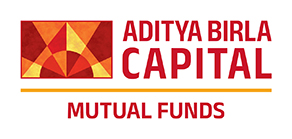National Education Day and Children's Day: Learning for Investors

We recently celebrated National Education Day and Children’s Day. The birth anniversary of India’s first Education Minister, Maulana Abul Kalam Azad, on November 11th is celebrated as National Education Day. On this day, we not only remember the contributions of Maulana Azad towards the cause of education in India, but we should also endeavour to spread the light of education in our society, while enlightening ourselves as well since learning is a lifelong process. On November 14th, we celebrate the birth anniversary of India’s first Prime Minister, Pandit Jawaharlal Nehru as Children’s Day. Pandit Nehru was a great advocate of children’s rights and an all-inclusive education system. In this article, we will discuss the learning from National Education Day and Children’s Day for investors.
You must read this article World Investor week 2023
Knowledge Based Society and Investor Protection
One of the goals of National Education Policy 2020 is India becoming a knowledge based society. A knowledge based society relies on the knowledge of citizens to drive innovation, dynamism and growth in every sphere of life, especially the economic growth of the nation. In a knowledge based society, citizens are aware of their rights and responsibilities, make better decisions, are able to adapt better to changing circumstances and are usually able to progress more in life.
Knowledge is an important factor in protecting you as an investor. According to our capital markets regulator, SEBI, "An informed investor is a protected investor". Investors often end up making losses due to poor decisions. For example, if someone promises 20% assured returns to you, this should immediately ring alarm bells for you. The risk free return in our economy in the short term cannot be much higher than the repo rate, which is the rate at which the Reserve Bank of India lends money to commercial banks. Over longer tenures, risk free returns will not be higher than yields of Government Bonds of similar tenures. If you understand the relationship between risks and returns, you will not fall prey to fraudulent schemes.
Lifelong Learning – Investor Education
Adult education and lifelong learning is one of the key aspects of National Education Policy 2020. Education does not end with school and college, it continues throughout your life. Continuing education even after you start working is quite popular in the developed economies like the United States. Through continuing education, you keep on upgrading yourself with new skills and knowledge which can help you in your career or business.
Likewise in investments, education should be a continuous process. You may start your investment journey with a few products, but as you gain experience and progress through different life-stages, other products may suit your investment needs. For example, you may start your investment journey with diversified equity funds or balanced funds. As you gain experience, you can start investing in other asset categories. Gradually as you approach retirement, debt products may suit your investment needs. You should keep upgrading your knowledge about different investment products, how they work, what are the risks, what are the potential benefits etc, throughout your investment journey which can be a lifelong process.
Another reason for continuing your education as an investor is the continuous evolution of the financial markets landscape. If you trace the journey of our financial markets or the mutual fund industry from the 90s to the 2020s, you will see that the financial markets and the mutual fund industry has undergone through significant evolution. This is not surprising at all because as a market or economy matures, significant changes take place in markets, products and needs of investors. You need to keep abreast with the changes, so that you can get the maximum benefits.
Suggested reading – Financial Independence – Mutual Fund Sahi hain
Empowering you for the future
One of the goals of National Education Policy 2020 is to empower the youth of India for a brighter future. Investments can also help you prepare for a brighter future and achieve financial security. If you start your investment planning from a young age, you can achieve your financial goals with much lesser effort. Investor awareness plays an important in your journey towards financial security. You will make more informed investment decisions which can greatly improve your investment outcomes.
Prepare your children for a brighter future
Children's Day is celebrated all over the world. UNICEF celebrates November 20th as Children's Day. In India, the birth anniversary of Pandit Nehru is celebrated as Children's Day. At its core the idea of Children's Day is to create an environment where children can grow, learn and achieve their full potential. Higher education plays an important role in developing a child's potential. Parents should start planning for their child's higher education from an early age.
As per an insurance survey, 35% of parents worry that they may not be able to fund their children’s higher education. Rising cost of higher education is the primary concern. Cost of higher education for courses like MBA, Medical, Engineering and Law are increasing at 10%. Assuming a similar trajectory of increase, a course which costs Rs 15 – 20 lakhs at current prices now will cost Rs 60 – 80 lakhs 15 years later.
You need to start early to fulfil your child’s higher education aspirations. By starting early, you give yourself sufficient time to accumulate the corpus needed for your children’s education through the power of compounding. Returns from traditional fixed income investments may not be sufficient to meet your child’s financial goals. You should invest in the right asset class in order to get the returns needed to achieve your child education plan goals. Historical data suggests that equity as an asset class has the potential to outperform other asset classes over long investment horizon. As such, equity funds maybe more suitable for children’s higher education needs, especially when the child is young. As your child grows older, you can gradually rebalance your asset allocation towards hybrid funds.
You may also like to read Ghar ghar mutual fund – Har ghar SIP
Financial education for your child
Your child will grow up after a few years and will have to be financially independent. You can help your child to be financially prudent by teaching him / her, the importance of savings and investments from a young age. More work needs to be done on financial literacy for kids in our education system, but as a parent you can start teaching him / her, the importance of managing finances from a relatively young age. This will inculcate good financial habits and will help your child to become financially independent from a young age.
Along with knowledge about finance and investments, you should try to develop emotional intelligence in your child. The right investor behaviour, patience, discipline etc is a critical element in the realm of investments and is one of the main factors of long term success as an investor. This can help you also.
Learning resources
Educating yourself and your children can be possible through different mediums based on your or your child’s learning preferences - be it through reading articles, watching videos or listening to podcasts, etc. Aditya Birla Sun Life AMC has extensive learning materials on Investor education which can be accessed through this link - https://mutualfund.adityabirlacapital.com/Investor-Education (an investor education initiative by Aditya Birla Sun Life AMC Ltd).
Conclusion
We recently celebrated Diwali, the festival of lights. The lighting of lamps signifies dispelling darkness and going into light; ignorance is darkness and knowledge is the light. Ignorance breeds fear, false beliefs, misconceptions and lack of action. Knowledge on the other hand gives wisdom, strength and a brighter future. Let the brightness of Diwali, the bursting of crackers herald a brighter future for you and your children through financial and investor education.
Disclaimer: An Investor education and Awareness initiative of Aditya Birla Sun Life Mutual Fund.
All investors have to go through a one-time KYC (Know Your Customer) process. Investors to invest only with SEBI registered Mutual Funds. For further information on KYC, list of SEBI registered Mutual Funds and redressal of complaints including details about SEBI SCORES portal, visit link https://mutualfund.adityabirlacapital.com/Investor-Education/education/kyc-and-redressal for further details.
Mutual Fund Investments are subject to market risk, read all scheme related documents carefully.
RECOMMENDED READS
LATEST ARTICLES
- Investor Rights in Mutual Funds
- Responsibilities of Regulators and Key Constituents of the Mutual Fund Industry
- ABSL Balanced Advantage Fund: A proven all seasons fund for growth and stability
- ABSL SIP for Life: Plan to build and enjoy your wealth
- Aditya Birla Sun Life Flexi Cap Fund: Legendary track record of wealth creation
Follow Birla Sun Life MF
More About ABSL MF
POST A QUERY






